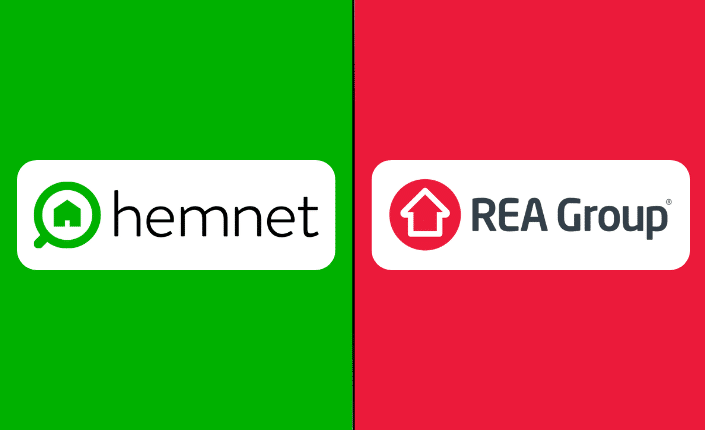
Vendor-paid markets are great for real estate portals. For more than a decade the leading Swedish player Hemnet has charged home sellers a fee to list on its portal and has been doing great business from it.
After all, as Hemnet's 2021 IPO prospectus pointed out, who's more motivated than the person selling the property to do whatever it takes for a high sale price?
Since 2013 Hemnet's model has proved that sellers will pay more for better exposure on a leading portal if they think they'll get a better outcome.
The other major vendor-paid advertising market is Australia, where the leading portal operator REA Group is an old hand at extracting money from sellers.
REA makes more money per user, more per transaction and more per listing* than its Swedish counterpart.
REA also reports better profit margins. Where Hemnet's operating margin was 44.6% in 2023, the comparison figure at REA Group's Australian portal operation was significantly higher at 64.8%.
But when comparing companies operating on opposite sides of the planet though, there are caveats. For one, Hemnet operates in a much smaller market both in absolute and relative terms.
Not only is Australia's population two and a half times bigger, but its property market sees around 25 residential transactions per 1,000 people every year whereas Sweden sees only 19. Average sale price and average agent commissions are also both much higher in Australia.
Another reason for Hemnet's ostensibly inferior numbers is that it doesn't keep all of its revenue.
Swedish agents can sign a contract with the portal which sees them earn a commission when they upsell Hemnet visibility packages to home vendors. It's a relationship that seems to work for both parties.
"Real estate agents are Hemnet's most important partner and we strive to create a win-win proposition and always include their perspective in our product development. Hemnet works by matching sellers and buyers, so agents using Hemnet are happy to communicate the win-win situation to new customers because we give the agents what they want.
"Creating a financial alignment with the interests of agents could definitely be used as food for thought with other portals looking to get agents onside." Hemnet's CPO, Francesca Cortesi in a 2023 interview with Online Marketplaces.
Over the last three years, Hemnet has paid an average of 21% of its revenue to agents. In Australia, portals aren't allowed to compensate agents for persuading vendors to stump up for visibility packages.
The Swedish and Australian markets operate in harmony. The seller has perceived value from the extra visibility, the agents aren't fighting the portals as their interests are aligned, and the portals can increase prices regularly as their customers aren't paying them every single month and keeping track of the cost.
In Hemnets' case, it doesn't even have to worry about selling its own premium visibility packages. It has some of the best salespeople in the country motivated to grow their own earnings as well as the portal's
The only threat seems to be legislative change or government legal action such as the investigation into Hemnet launched by the Swedish regulatory body in 2013 (which ultimately came to nothing).
Other portals around the world are jealous.
Ireland's leading portal Daft.ie is currently three years into an experiment to see whether it can change the market and introduce vendor-paid advertising. The experiment was dealt a blow by Irish regulators recently and a lack of granularity in Adevinta's reporting** obscures any measurement of its success.
The relative harmony of vendor-paid advertising markets remains a privilege for an exclusive few portals.
* OC&C estimated the gap between Hemnet's ARPL and REA's at 5.5x in Hemnet's 2021 prospectus. Our estimate based on listing figures from ProperBird is 5.7x in 2023.
** Daft is owned by DistilledSCH, a joint venture between its founders and classifieds operator Adevinta. Although Adevinta is a public company (for now) it does not break down Daft's revenue in its reporting.